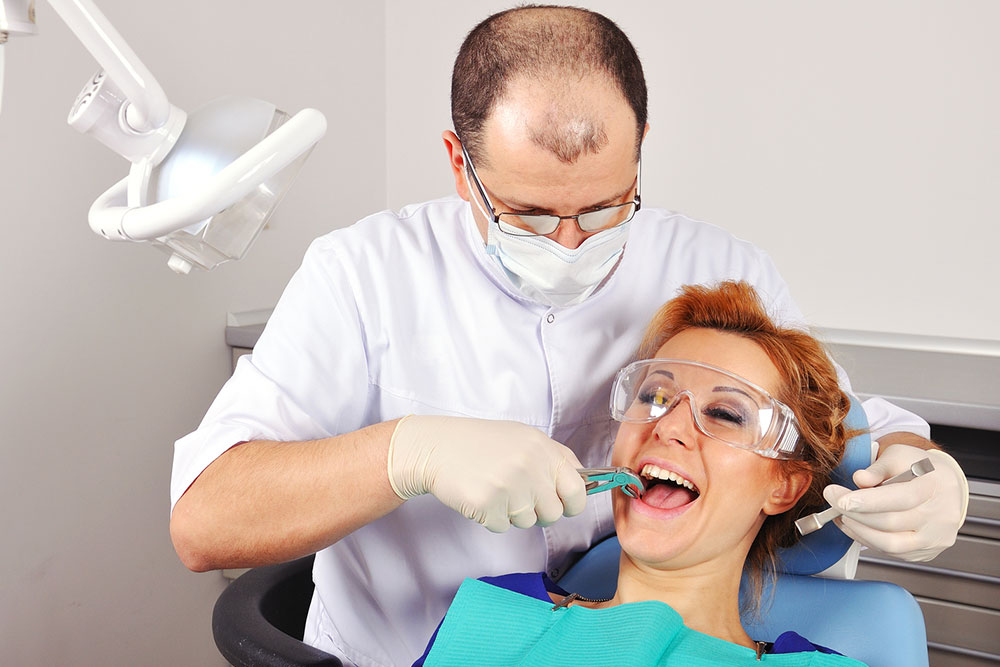9 Things to Do Before a Tooth Extraction Procedure
Pearly white teeth enhance one’s appearance and are a sign of health. But maintaining the teeth takes effort. Sometimes, a person’s tooth or teeth may have to be extracted for various reasons, such as decay, periodontitis, overcrowded teeth, and infections. When an experienced dentist performs this procedure, one recovers steadily and better manages symptoms like pain and discomfort. But for the best outcome, it’s important to consider certain factors before going in for tooth extraction.
Prepare for an X-ray before the procedure
Extraction is broadly of two types: simple and surgical. The basic procedure may be performed if the tooth that needs to be extracted is easily accessible.

Eat only soft foods before and after tooth extraction
Tooth extraction leaves one vulnerable to toothache and bleeding, which can worsen if one eats anything sticky, hard, and difficult to chew. To prevent such issues, dentists ask patients to only have soft foods before and after tooth extraction. Soft porridge with well-cooked grains, soft bread, mashed potatoes, ripe bananas, and soft pasta are good options for those considering tooth extraction.
Choose a dentist with expertise and hands-on experience
Tooth extraction is a major procedure, so it should be handled carefully. That’s why one should look for a dentist with considerable expertise and experience, not only in the dental profession but also in tooth extraction. It’s essential to have an initial session with the expert to discuss one’s dental history and current issues and determine whether they can come up with specific solutions. A dentist should also be able to suggest effective pre- and post-operative practices to help one cope better with the treatment’s side effects.
Know the reason for tooth extraction
A dentist might suggest tooth extraction for several reasons, such as decay, infection, teeth crowding, trauma, and infections. Understanding why tooth extraction is necessary in one’s case can help one take measures to address the root cause. For example, if decay is the reason for tooth extraction, one can avoid further decay by practicing meticulous oral hygiene, avoiding sugary foods, and preventing tartar from developing.
Understand the procedure well
Going for tooth extraction for the first time can be overwhelming, but one can prepare mentally by understanding the procedure and steps beforehand. In a simple extraction, the tooth may be easily removed using forceps, but surgery may require making an incision in the gum to extract the tooth. Depending on the severity of the incision, the expert may administer a treatment to numb the mouth region so that the patient does not experience pain.
Check whether the extracted tooth can be replaced
Depending on which tooth was extracted, dentists may offer to replace it with dentures, a dental bridge, or dental implants. Experts can suggest the best replacement for lost teeth, so one should discuss all possible options with them before tooth extraction.
Inquire about post-procedure care
Some pain, bleeding, and swelling are common after tooth extraction. One should follow the dentist’s instructions closely to manage these symptoms. During the first day after the procedure, one should drink beverages using a straw and avoid hard foods. Individuals should also avoid strenuous tasks for the next few days. Applying ice packs on the affected area can help reduce swelling. Since healing can take several weeks, one should regularly visit the dentist for checkups. Patients should understand such post-procedure best practices before extraction so they can prepare for the days to come.
Arrange for help with daily activities
During recovery, it might become difficult for those who have just undergone tooth extraction to perform household chores. So, it’s best to seek help from one’s family, friends, or neighbors or hire professionals. Doing so will ensure the house is well-maintained. A strong support system will also help with quick recovery after tooth extraction and avoid unnecessary strain. Individuals must arrange for help before the procedure so they can enter recovery mode immediately after getting home.
Confirm the tooth extraction cost
The cost of a tooth extraction depends largely on the type of extraction. A simple tooth extraction procedure costs between $70 and $200 per tooth, whereas a surgical extraction costs between $800 and $4000. It’s important to speak with the dentist beforehand about the total cost of the procedure and be financially prepared before going for it.
Besides understanding the procedure and being financially prepared, one may speak with others who have undergone tooth extraction. The conversation may help the individual understand their experience and how they managed the repercussions. Such conversations can also provide much-needed reassurance and useful tips to manage pain, bleeding, and discomfort after a tooth extraction procedure. Finally, staying calm and relaxed before the procedure is imperative. Meditation and yoga may help achieve this objective.

